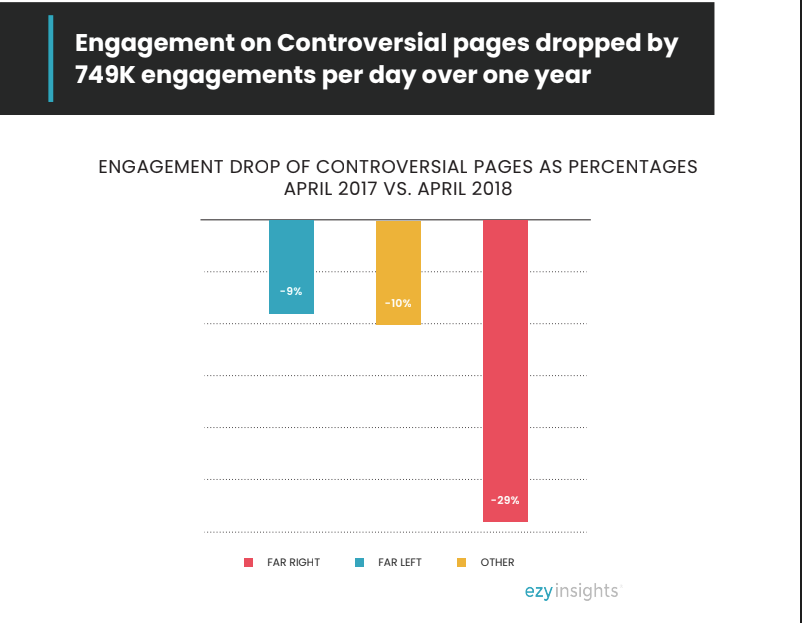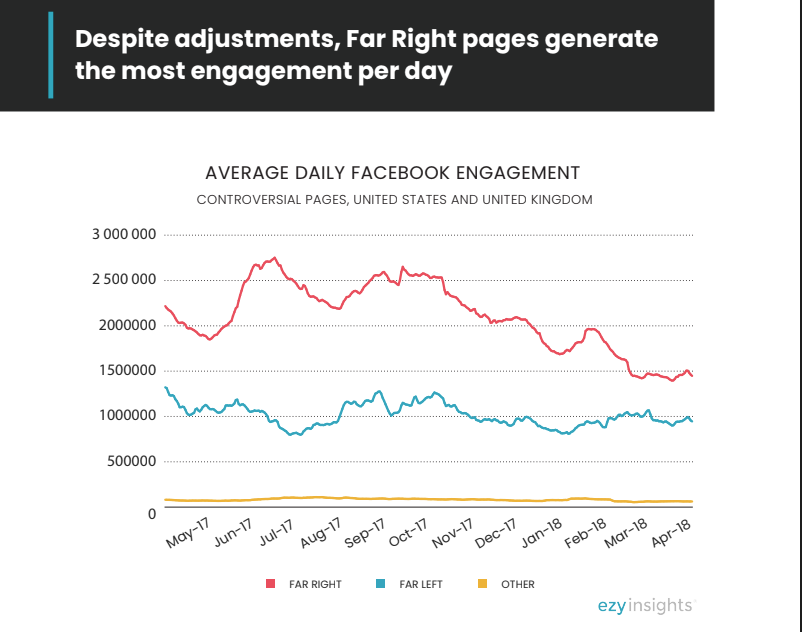The Far Right is feeling targeted on social platforms. Britain’s Nigel Farage directly questioned Facebook founder Mark Zuckerberg on the very subject, claiming that:
“right-of-center political opinions” had been affected by a change in Facebook algorithms in January of this year, and that “on average, we’re down about 25 percent over a course of this year.” (It was not clear where Farage was drawing his data from.) (Source: The Verge)
We recently took a detailed look at whether Controversial pages across the political spectrum have performed over the past 5 years. Are the Far Right being targeted to a greater degree than others? Of course, the answer is …its complicated.
To be clear, we’re talking here not about mainstream publisher that have a conservative or right wing political stance, but pages and publishers outside of the mainstream which we label as ‘Controversial’. These include pages such as Breitbart, Britain First, Tommy Robinson, Western Journalism and many more.
Certainly, we have seen a big drop in engagement on Far Right Controversial pages on Facebook over the last year:

However, approximately one third of this drop came from manual page deletions. That is – pages which broke Facebook’s rules enough times that the whole page was taken down. With page deletions taken into account, the Far Right does indeed see a bigger drop, but there’s no reason to expect that different content should be treated equally. We also discovered that the Far Right pages have been active and growing for years, and that despite the drop in engagement, Far Right Controversial pages remain significantly larger than other Controversial pages:

Is the drop on the Far Right an anomaly? Quite the opposite in fact. Over the last year we’ve seen engagement on media publishers’ Facebook pages fall across the world. In Europe that drop has been anywhere from 5% in France, to 36% in the Netherlands. So the drop across all Controversial pages including specifically Far Right pages is well within the current trend on Facebook.
Not only have Wired written up these findings in an accessible article here, you’re able to dig into the data directly from the report yourself.
Please drop us a line if you have any questions about the data and findings of this report.
